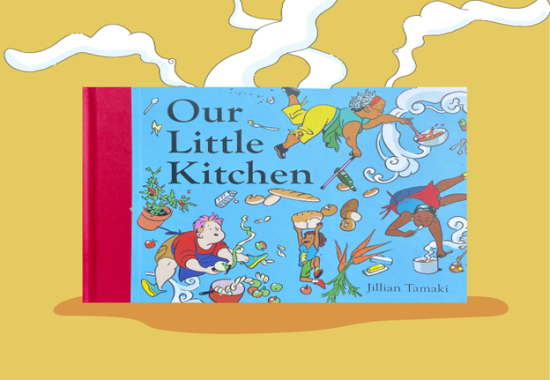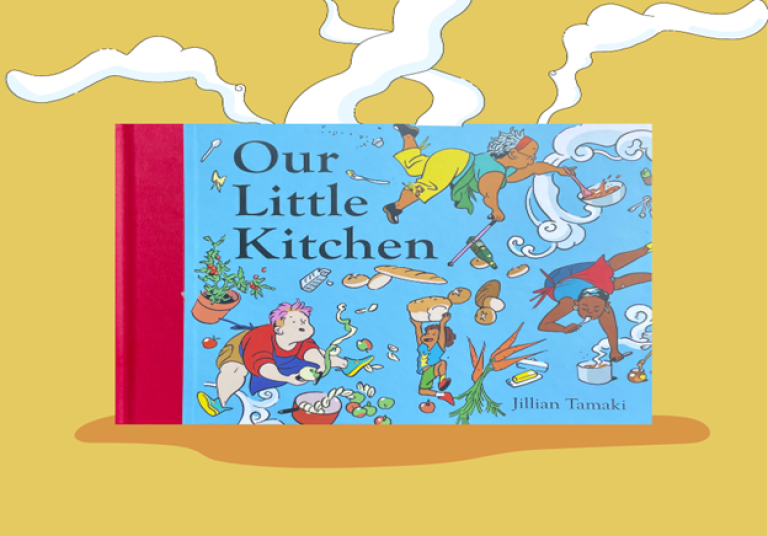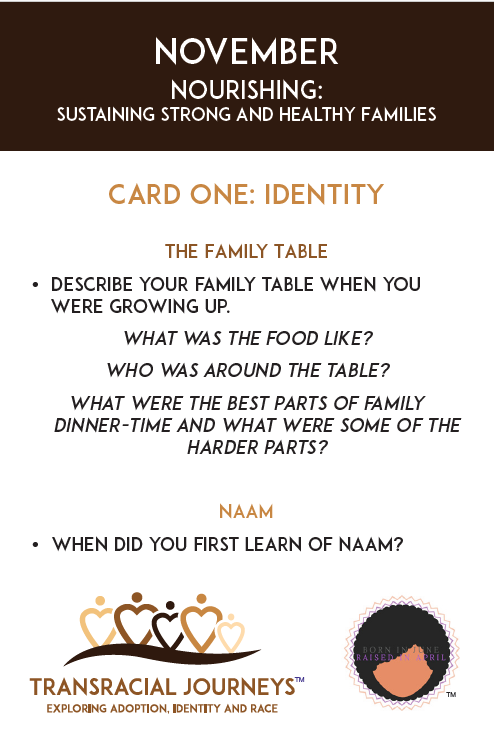by TRJ Executive Director April Dinwoodie
Generosity and good heartedness are core values in the family system I was adopted into. Throughout the year and especially during at the holiday season, you’ll hear members of my family saying, "There is always room at our holiday table." It's a sentiment that suggests inclusivity and kindness and it feels good to open hearts and home to folks that may need a seat at your family table.
With this spirit and with amazing cooks in the mix, on any given Sunday or holiday, there is a mix of family and friends, old and new, around our dining table. Laughter, love, and abundance fill the space and it’s hard not to feel blessed to have been enveloped into this warmth. At the same time, there were members of my family of origin that hung at the edges. As extended family and friends gathered round our table, I could not help but wonder where my extended family of origin were where? What were their holiday cultural traditions? And what was it like to look around a table and see genetic mirrors and physical resemblances?
Adoption is often characterized as a beautiful and transformative journey that brings families together. It is often accompanied by the sentiment, "There is always room at our table," reflecting the openness and love adoptive parents have for the children entrusted to them through adoption. However, when these words are spoken while family of origin are not welcomed, it raises important questions about the true meaning of inclusivity within the adoption experience.
The Importance of Family of Origin Inclusion:
Family of origin is an intrinsic part of identity and heritage for all human beings. Excluding family of origin from the adoptive family's table sends a message that their role and connection are not valued or acknowledged. It is essential to recognize that an adopted person’s story is not complete without healthy connections to the family that came before adoption. Excluding them not only denies the child their full history but can also create feelings of loss, confusion, and a sense of divided loyalty.
Adoption requires parents to center on true inclusivity and shift from merely extending words of welcome to actively fostering connections with family of origin. Here's how adoptive parents can challenge the status quo and create a more inclusive environment:
See Family of Origin as Your Family too:
I often hear adoptive parents speaking about an adopted person’s family of origins as “their family” when in reality, it’s really “our family.” Even with the complexities of family separation, abuse and neglect, there are ways to be in relationship with even the idea of family of origin with open, truthful, and age-appropriate conversation. In order to fully embrace family of origin, parents must first internalize their feelings connected to the kin of the child. This is big human work and with supports as needed, community to validate the difficulties, and with the best interests of children at the center, these important connections are possible.
Building Bridges, Not Barriers:
View the family of origin as potential partners and positive influences in the child's life. If healthy relationships are not possible, there are other complications with the contact and previous abuse and neglect, you may have to work hard to make sure there is at the very least a conversational connection to family of origin. By integrating the appropriate level of discussion and action surrounding family adoptive parents demonstrate a commitment to inclusivity and recognize the value of the child's entire support network and the importance of healthy identity.
Celebrate Shared Moments:
For more practiced families, incorporation of the family of origin into significant events and milestones in the child's life can be transformational. Birthdays, graduations, and holidays can be celebrated together, creating an inclusive environment where a child does not feel they have to choose which family they want to celebrate with. If there is not an opening for connections to family of origin, you can engage in active dialogue about the family that is not always present to acknowledge and honor the child's roots, traditions, and cultural heritage.
Create Opportunities for Conversation:
Take the lead in fostering a supportive environment where children feel comfortable discussing and exploring their feelings about family connections. Encourage open conversations about adoption and provide resources that help them understand and navigate your unique family dynamics. By acknowledging and validating emotions, parents can help their children develop a healthy sense of self and identity. The November conversation cards help set the tone and guide discussions.
Remember, as adoptive parents, when you say, "There is always room at our table," are you truly open to any and all pulling up a chair? Inclusion goes beyond words; it requires active efforts to build bridges, promote open communication, and celebrate shared moments. By recognizing the importance of family of origin, adoptive parents can create a more culturally appropriate and nurturing environment for children. Only by embracing the full spectrum of a child's identity and heritage can we truly honor the spirit of adoption and create a more inclusive, loving, and supportive family dynamic.
I sought out my family of origin and am in connection with many family members on my maternal side but we have yet to all sit down at the holiday table together. My hope is that your children get connected to origins in whatever way possible with you by their side with open hearts and minds.







